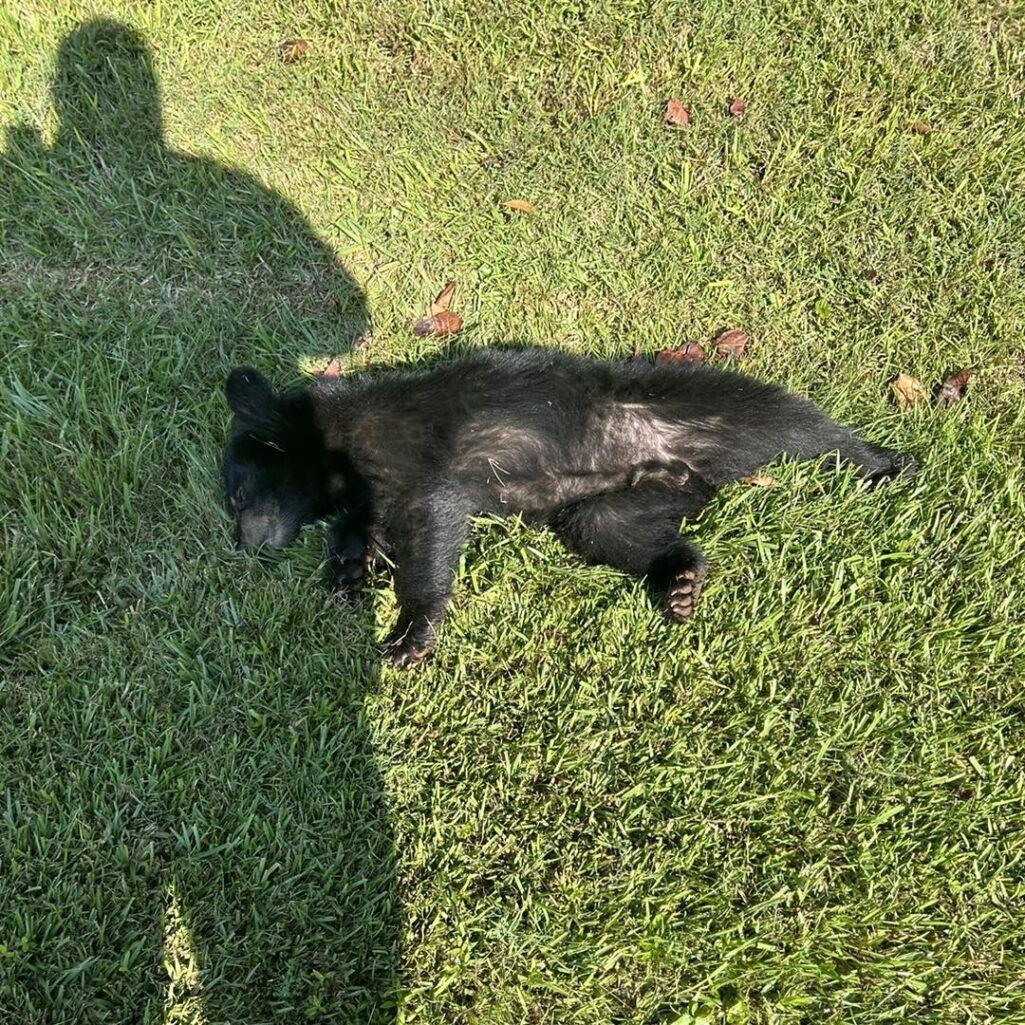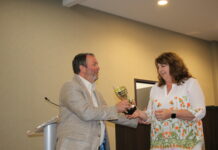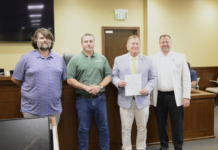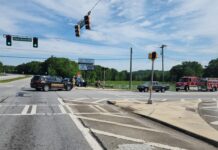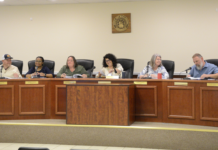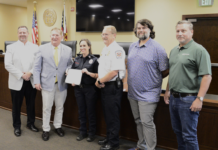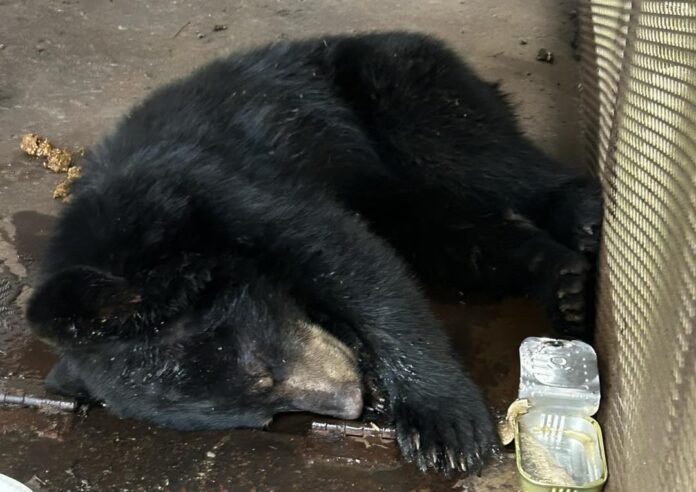
A black bear cub found injured along Highway 123 in Stephens County had to be euthanized earlier this month, according to Georgia’s Department of Natural Resources. DNR officials say greater public awareness about the animals could reduce the chances of this happening again.
Stephens County Sheriff’s Office deputies observed the 39-pound male juvenile bear stagger across the highway to a nearby creek early Sunday morning on Oct. 6. Deputies and a citizen were able to rescue the cub before they contacted DNR. The cub was then transported to the Lake Russell Wildlife Management Area for further evaluation.
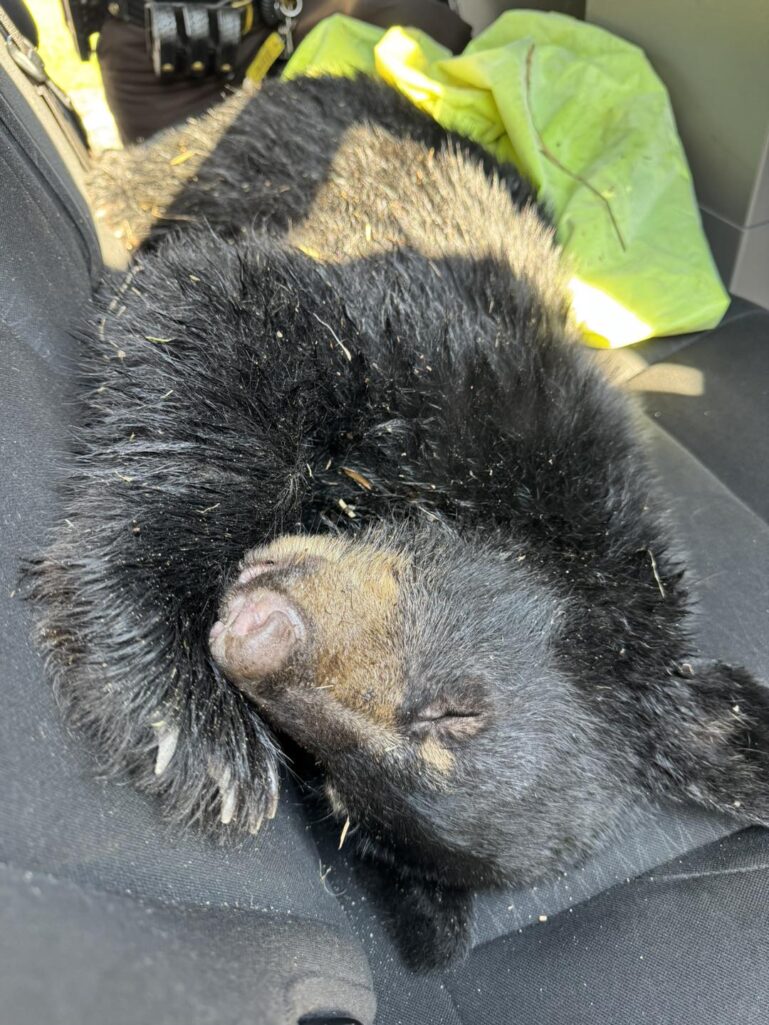
At the time, authorities believed the bear suffered from exhaustion. But Ryan Watts, a senior wildlife biologist with DNR, said he knew right away the potential prognosis could be more severe.
“Anytime you can walk right up to a bear cub and catch it, there is something wrong,” Watts said. “There is an illness or injury or something unnatural that has happened to that bear.”
Watts continued to monitor the cub’s health, which “declined significantly” as the hours passed. Eventually, the animal lost consciousness and had to be euthanized.
A necropsy later concluded the bear had sustained multiple broken ribs, internal bleeding and a large bulge on the right side of its body. Watts said this was a clear indication the bear was likely struck by a vehicle or fell a significant distance – the former being the most probable.
“I’ve seen bears that have been hit by cars many, many times,” he said. “As soon as I felt its (injury), I knew exactly what it was.”
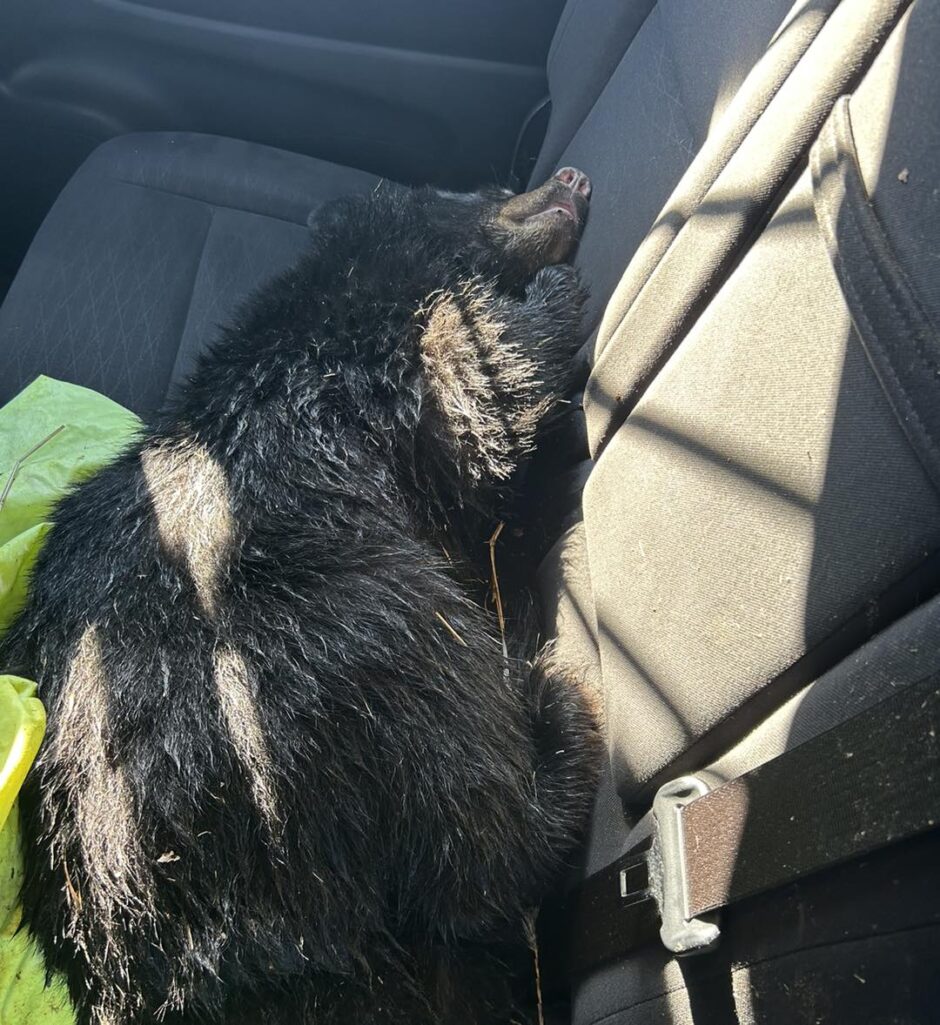
Prevention
Watts said humans, specifically for food sources, are the primary reason bears inhabit more populated areas to the south of the North Georgia mountains. When people feed bears, he explained, there’s a higher likelihood of one running into traffic, particularly in more populous areas.
“That’s why (the cub) got hit by a car,” Watts said. “This bear stayed in dumpsters (in Toccoa) all the time with its mother. People don’t think of Stephens County as bear country. It is very much bear country…it is just as important in Stephens County – as it is in Rabun or Towns or Union – not to feed the bears.”
Had the cub not been euthanized, Watts said he would’ve been rereleased near the area where he was found – in hopes the bear would reunite with its mother.
“He couldn’t have survived without his mother, and if we turned it out in the wild on its own, that’s just not the right thing to do,” he said.
As a message to the public, Watts again emphasized that people should not feed bears. Residents and businesses also should strive to eliminate, secure or lock outdoor food sources like dumpsters or trash bins.
“If that bear hadn’t been allowed human foods, we probably could’ve avoided that,” he said.
